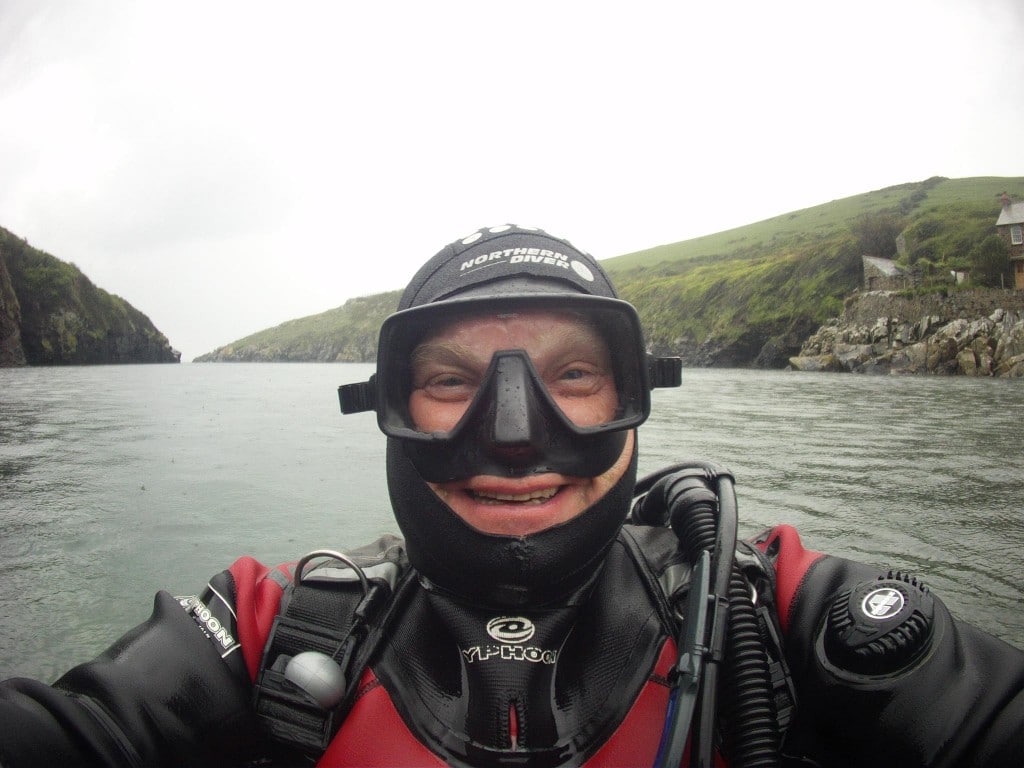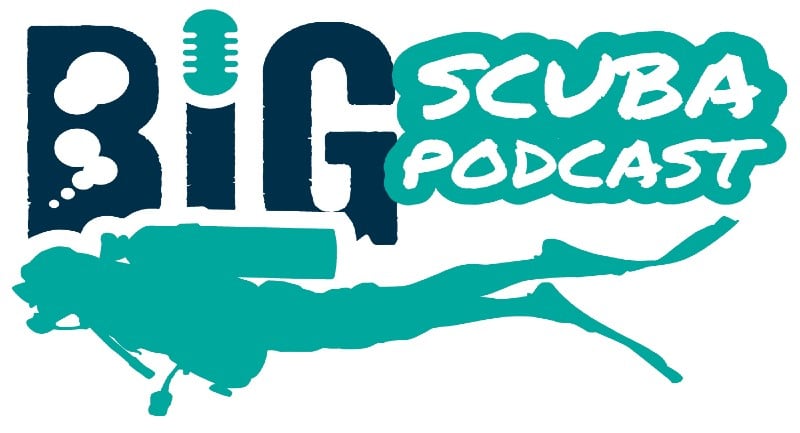Miscellaneous Blogs
What if the Dive Industry could work together to produce a TV programme?

What if the Dive Industry could work together to produce a TV programme? This could work in every country and would generate a lot of programmes for people to watch worldwide. This could be done in several ways but here are a couple of ideas based on the U.K.
Around the U.K. there are hundreds, if not thousands, of dives completed every week. With the arrival of sports cameras to suit all budgets, there is a lot of footage being taken. It’s not all good but most could be edited down into short, usable clips. Clips of a single dive site could be collated, they could then be used to create the basis for a program. Editing of potentially hundreds of clips sounds a nightmare, but if you have a local University that teaches media studies, the students could be used to do the first edit.
Reducing 40 minute videos into a clip that suits may just take a few seconds of genius or luck by the cameraman. A willing presenter can then talk to people at the dive site or on a boat near the dive site. The key to a good programme will be in the final edit, which takes time. With the amount of footage available, it would be easy to make a 30 minute programme for most sites. Due to programming styles, allowing for start and end titles and adverts, this is only two 11 minute segments. There will be more about programming later.

The U.K. has many stories and secrets to be unveiled. In 2016, I embarked on a quest to find the Darlwyne, a motor cruiser lost in 1966, with 31 people on board. The vessel was lost with no survivors. After some detective work, we knew the area to search. I found some remains of what we believe to be the Darlwyne, just one week before the fiftieth anniversary of the loss. The BBC filmed most of the process and interviewed relatives and others who remembered the event. It was then presented on TV as a whole 30 minute episode of BBC’s Inside Out.
The program shouldn’t have cost a lot to produce and was aired on BBC HD countrywide. There are many stories like this; in fact, I am working on one right now with the BBC. It only takes a small team and a half decent story to make a good and interesting programme.
I have plenty of ideas of programmess that have a wider interest but still contain diving. We have people we know who would make great presenters. Here at Atlantic Scuba, we have a multi award winning and twice BAFTA nominated cameraman/editor/producer. We even have a local University that teaches media studies. I am sure we are not the only dive centre and community in the U.K. like this; I’m sure there are probably several in similar situations in every country.
A suggestion for the U.K. and a bit about programming:
In the U.K. and throughout most of Europe, we have Sky TV. There is also Freeview in the U.K. and probably similar programming in Europe and the rest of the world. These broadcasting companies have many channels and some allow individuals to buy air time. Air time is not expensive for the smaller channels. These channels are watched by tens of thousands of people, including those representing other channels. Other channels choose to license programmes they like and show them on their own channel. This can happen more than once.
The cost of airtime can be financed by a sponsor and advertisers. An advert can be as short as 15 seconds. So where is this going? Programming is all about the financials around programming. So let’s look at the maths…
Air time on a lesser known Sky TV channel will cost roughly £1000 an hour. That hour gives you 9 minutes of advertising space to recover the costs. The programme will also be available online, to watch on-demand, after being shown. If we could make an inexpensive programme, which certainly can be done, for say around £3000, a 15 second advert would need to be sold for under £120, slightly less if there is a programme sponsor too. This would then break even.
If the programme was re-sold to another channel, then there would actually be a profit. It could even be sold to other countries. Most airtime suppliers would like a series, rather than a single programme. So six programmes would need to be made for a small series, although it does not have to be limited to any specific amount of programmes. If done worldwide, by half the countries in the world, there would be 300 hours of diving on TV globally available, based on six 60 minute programmes.
If you created a new series each year, in each country, the choice would be expansive. Any profit made by reselling, could be put into making more or better programmess, or used to refund/credit advertisers. Remember, the more diving gets seen, the more people will want to dive.
What do you think?
Find out more about Mark and Atlantic Scuba at www.atlanticscuba.co.uk
Blogs
RAID: The Globally Respected Agency


If you ever wondered what’s the exciting buzz around the RAID Diver Agency, we can tell you right here!
The prestigious Royal Thai Marine Police have chosen RAID as their trusted agency for their Underwater Operations Course.

This intense and rigorous course is designed to equip the force with the specialized skills and expertise needed for all underwater operations, ensuring they are totally prepared for the challenges of their critical missions.
With RAID‘s comprehensive training, the Royal Thai Marine Police will be well-prepared to handle the demands of their underwater tasks.


Why RAID? Truly Different?
The RAID philosophy is we are divers, not Recreational or Technical, just divers.
We all start with our first breath underwater with limited knowledge and experience. How much theoretical knowledge individuals may want is a personal choice.
However, when it comes to practical experience, there should be no difference to the required skill foundation and learning the fundamentals of diving is crucial.
With the roots of RAID International being founded in a technical background, the ethos is to provide all divers with solid fundamental skills of diving buoyancy, hover & trim which provide a robust platform for any future training in whatever direction they decides interests them.
How do RAID do that?
RAID conduct all dive skill training how you would use it practically. Perfect buoyancy with good hover and trim position.

Other agencies teach you to sit on the bottom and do skills! Do you go to the bottom every time you want to clear your mask?


Dive training in a class of its own.
RAID FREe-Learning.
No smoke and mirrors with RAID, there is nothing to hide.
Everyone can access any and all of RAID course theory and skills manuals online and downloadable without any charge or commitment.
Truly FREe-Learning
You bet that wasn’t popular with the book selling agencies!
If that wasn’t enough, additionally, all the skills videos, are available on YouTube with FREE access.
The core of RAID‘s ethos is to provide all divers with solid fundamental skills of diving buoyancy with perfect hover & trim providing a robust platform for any future training.
To enable that, RAID Professionals must have skills honed to the highest level, always performed with consummate ease and completely naturally.
 To access the whole FREe-Learning library completely without any commitment or cost, simply register with RAID by scanning the QR code.
To access the whole FREe-Learning library completely without any commitment or cost, simply register with RAID by scanning the QR code.
No one will contact you, you are free to download and peruse whatever you want to.
Should you decide you would like to know more or would like to take a course contact James at RAID UK and he will direct you to your local RAID centre.
RAID UK
James Rogers
www.diveraiduk.com
info@diveraiduk.com
+44 191 4324644
RAID – A Global Agency
RAID has Regional Offices around the world all fully embedded in the governing bodies of diver training.
WRSTC Member USA, ERSTC Member EU, Worldwide ISO Certified, RTC founding member.
RAID Dive Centres are in all corners of the UK!
All ready to offer divers and beginners a friendly welcoming new standard of service. Whether you are ready to take your first breath or an experienced exploration diver, make visiting a RAID Dive Centre your next step.
Here are just a few suggestions.

Bay Divers
Swansea
www.baydivers.co.uk
+44-7859-018970


 West Coast Diving
West Coast Diving
Kilmarnock
www.westcoastdiving.co.uk
+44-7904-539512


 SevernTec Diving
SevernTec Diving






RAID – Holiday Destinations
Looking to take a dive trip with your club or personally, here are just a few popular RAID dive holiday destination ideas for the UK based diver.
Egypt
Maldives
Bali
Thailand
South Africa
Click to contact the Regional Office for a full list of dive destinations in that region.
EGYPT




 Pharaoh Dive Club
Pharaoh Dive Club
Roots Red Sea, El Quseir, Egypt
info@pharaohdiveclub.com
www.pharaohdiveclub.com
+20 10068 22000
Multi award winning centre offering special ‘Dive & Stay’ packages


 Scuba Dreamer Diving College
Scuba Dreamer Diving College
Park Regency, Sharm El Sheikh, Egypt
www.scubadreamer.it
info@scubadreamer.it
+20 122 7150550
Based at Park Regency & Beach Promenade providing a full 5* package


MALDIVES



Fehivina Dhangethi &
Dhodhi – Dhiffushi – North Male’ Atoll
www.scubadivinemaldives.com
scubadivinedhangethi@gmail.com
scubadivinedhiffushi@gmail.com
+96 07913075
Range of accommodation options available


 Jerrys Dive Club
Jerrys Dive Club
Rasdhoo, Maldives
www.jerrysdiveclub.com
hello@jerrysdiveclub.com
+960 772 7876
Stay at Jerry’s Guest House


BALI



Prana Dive
Kabupaten Karaangasem, Bali, Indonesia
www.pranadive.com
info@pranadive.com
+62 813 3877 5345
Why not stay with us at Teratai Boutique Resort


THAILAND






SOUTH AFRICA


 Adventure Mania
Adventure Mania
Sodwana Bay, South Africa
www.adventuremania.co.za
info@adventuremania.co.za
+27 82 653 7824
Adventure Mania takes pride in providing personalised, eco-conscious dives that highlight the beauty of protected coral reefs and marine life. This family diving business, nestled within a Marine Protected Area, offers a diving experience that is as educational as it is exhilarating.
Adventure Mania’s expert instructors and staff have a deep-rooted passion for ocean conservation. They not only guide divers through breathtaking underwater landscapes but emphasise the importance of marine preservation. Teaching diving with Adventure Mania goes beyond imparting technical skills; it embraces fostering a respect for the ocean.



ScubaCo
Durban, South Africa
www.scubaco.co.za
info@scubaco.co.za
+27 79 779 4242
ScubaCo is a boutique RAID Dive Centre operating on the Kwa-Zulu Natal coastline of South Africa. ScubaCo are specialists in both shark and reef diving as well as featuring the annual Sardine Run migration as they are so well positioned to offer the best of the best.
Many clients enjoy our wonderful packages with ScubaCo Guest House accommodation coupled to amazing dive options – Shark Diving, Big 5 Safari & Diving the Sardine Run.
This destination is a must for every Diver and should be on your bucket list for dive travel.
Make sure to add Aliwal Shoal to your next Diving holiday and let Tamara and her team take fantastic care of you while in South Africa.


Dive & Travel the RAID way
When you see the RAID emblem at a dive centre around the world you can be assured that the highest standards of diver training are being provided, knowing all RAID professionals have met the testing criteria to achieve their professional rank.

Blogs
The BiG Scuba Podcast Episode 180: Dawn Kernagis

Gemma and Ian chat to Dawn Kernagis. Dawn joined DEEP in 2023 as the Director of Scientific Research. DEEP is an ocean technology and exploration company with a mission to ‘Make Humans Aquatic.’ DEEP’s undersea habitat and submersible systems, combined with multi-phased diver and human performance training, will create the next evolution of subsea science, research, and exploration capabilities. Dawn is a NASA-trained NEEMO Aquanaut, Explorer’s Club Fellow and Women Divers Hall of Fame Inductee and who is also tasked to establish DEEP’s first US presence in North Carolina. Dawn has also been a diver with numerous underwater exploration, research, and conservation projects since 1993, including the mapping and record-setting exploration of some of the deepest underwater caves in the world.
https://www.linkedin.com/in/dawn-kernagis-995383152/
The BiG Scuba Podcast is brought to you by Narked at 90. “Beyond Technical” Narked at 90 If you are thinking of moving across to tech diving or completely new to diving, Narked at 90 can advise and guide on the best equipment and set up for your personal or commercial requirements https://www.narkedat90.com/. There is currently a code for you to use for purchases and the code is BIGSCUBA2024.
If you are interested in the INSTA360 action camera we discussed then please click this link: https://www.insta360.com/sal/x3?utm_term=INRAI8S
We hope you have enjoyed this episode of The BiG Scuba Podcast. Please give us ★★★★★, leave a review, and tell your friends. Contact Gemma and Ian with your messages, ideas and feedback via The BiG Scuba Bat Phone +44 7810 005924 or use our social media platforms. To keep up to date with the latest news, follow us:
We are on Instagram @thebigscuba
We are on Facebook @thebigscuba
We are in LinkedIn https://www.linkedin.com/in/ian%F0%9F%A6%88-last-325b101b7/
The BiG Scuba Website www.thebigscuba.com
Amazon Store : https://www.amazon.co.uk/shop/thebigscuba
Visit https://www.patreon.com/thebigscubapodcast and subscribe – Super quick and easy to do and it makes a massive difference. Thank you.
🎧You can listen to the BiG Scuba Podcast on all major podcast platforms including …. iTunes, SoundCloud, Spotify and Stitcher 😀. ISSN Number 2752-6127
-

 Blogs2 months ago
Blogs2 months agoDiving With… Nico, Ocean Earth Travels, Indonesia
-

 News1 month ago
News1 month agoMurex Bangka Announce New Oceanfront Cottages & Beachfront Dining
-

 Blogs2 months ago
Blogs2 months agoA new idea in freediving from RAID
-

 Marine Life & Conservation1 month ago
Marine Life & Conservation1 month agoIceland issue millionaire whale hunter a licence to murder 128 vulnerable fin whales
-

 Marine Life & Conservation2 months ago
Marine Life & Conservation2 months agoThe Shark Trust Great Shark Snapshot is back
-

 News3 months ago
News3 months agoCharting New Waters; NovoScuba Goes Global with the Launch of their Revolutionary Dive Training Agency!
-

 Gear News1 month ago
Gear News1 month agoNew Suunto Ocean – a dive computer and GPS sports watch in one for adventures below and above the surface
-

 Marine Life & Conservation Blogs2 months ago
Marine Life & Conservation Blogs2 months agoBook Review: Plankton















 Dive South
Dive South